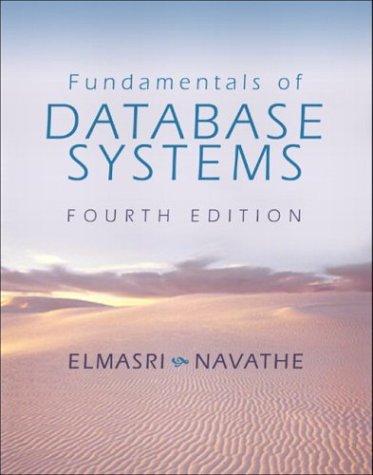Question
PROLOG multiple choice questions please answer with full explanations 18. What is the following mystery/2 about? mystery([],[]). mystery([X|Y],Z) :- mystery(Y,W), takeout(X,Z,W). takeout(X,[X|R],R). takeout(X,[F|R],[F|S]) :- takeout(X,R,S).
PROLOG multiple choice questions
please answer with full explanations
18. What is the following mystery/2 about? mystery([],[]). mystery([X|Y],Z) :- mystery(Y,W), takeout(X,Z,W). takeout(X,[X|R],R). takeout(X,[F|R],[F|S]) :- takeout(X,R,S).
A. append
B. prefix
C. permutation
D. reverse
E. suffix
F. member
G. sort
19. Consider the following query. It will have ___ answer(s). ?- member(X,[1,2,3,4]), Y = X*X, Y<10.
A. 0
B. 1
C. 2
D. 3
E. 4
20. Consider the following mystery/3 predicate.
mystery(X,[X|R],R). mystery(X,[F|R],[F|S]) :- mystery(X,R,S).
What is the result L of the following query: ?- mystery(1,[1,2,3], L).
A. L=1
B. L=2
C. L=3
D. L=[2,3]
E. L=[1,1,2,3]
F. L=[1]
22 Which of the following selections is correct? This ____ is to add a new fact or rule (clause).
A. args/3
B. assert/1
C. atom/1
D. clause/2
E. call/1
F. findall/3
G. functor/3
H. ground/1
I. op/3
J. retract/1, retractall/1
K. var/1
L. =, \=
M. ==, \==
23. What is the predicate ___ for the following query and its result? ?- ____(f(a,b),F,A). A = 2 F = f
A. args/3
B. assert/1
C. atom/1
D. clause/2
E. call/1
F. findall/3
G. functor/3
H. ground/1
I. op/3
J. retract/1
K. var/1
L. =, \=
M. ==, \==
24. What is the predicate ___ for the following query and its result? ?- ___(2,loves(richard, sarah), X). X = sarah
A. arg/3
B. assert/1
C. atom/1
D. clause/2
E. call/1
F. findall/3
G. functor/3
H. ground/1
I. op/3
J. retract/1
K. var/1
L. =, \=
M. ==, \==
27. Complete the second clause of the following Prolog program for member/2 where member(X, Y) checks whether X is an element (a member) of a list Y. member(X,[X|R]). member(X,[Y|R]) :- ____________.
A. member(X,R).
B. member(X,Y).
C. member(_,R).
D. member(Y,R).
E. member(X,Y).
Step by Step Solution
There are 3 Steps involved in it
Step: 1

Get Instant Access to Expert-Tailored Solutions
See step-by-step solutions with expert insights and AI powered tools for academic success
Step: 2

Step: 3

Ace Your Homework with AI
Get the answers you need in no time with our AI-driven, step-by-step assistance
Get Started


